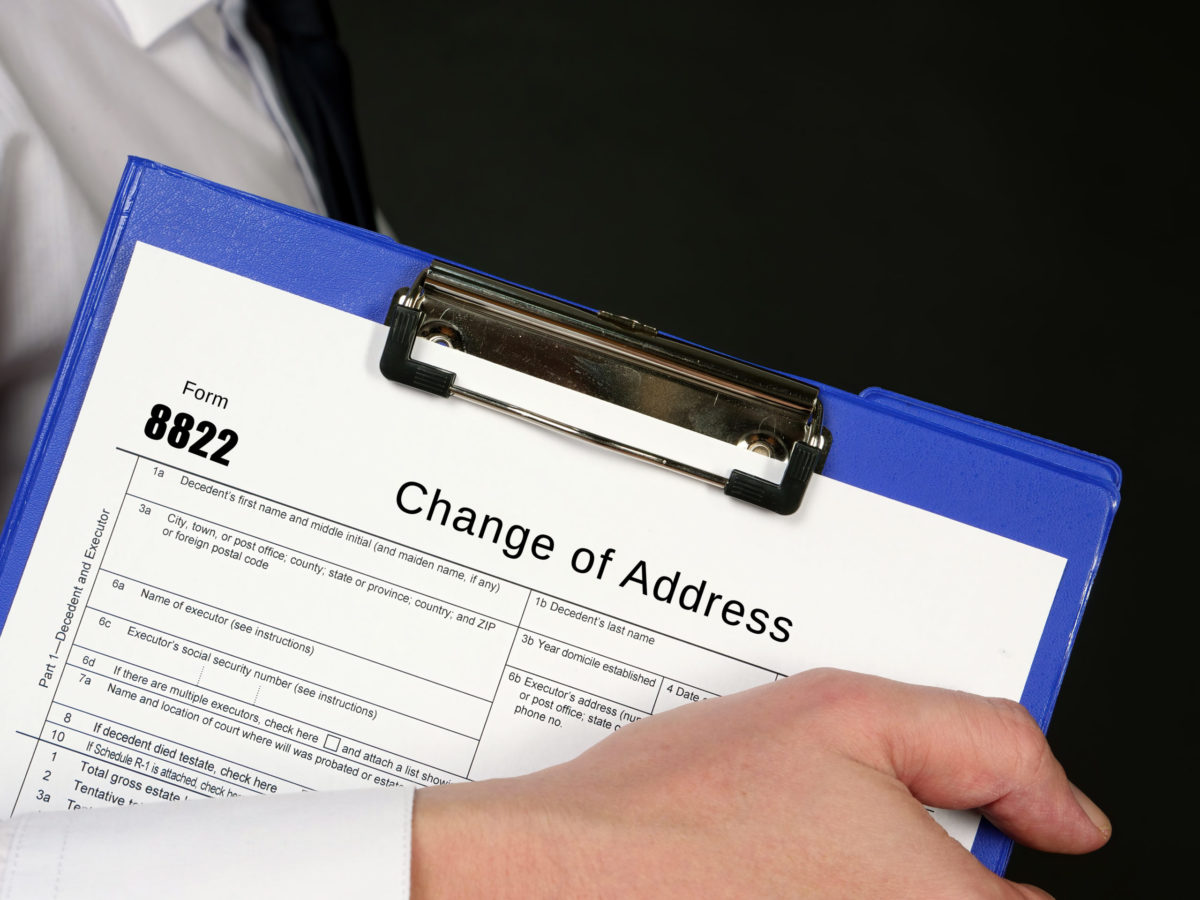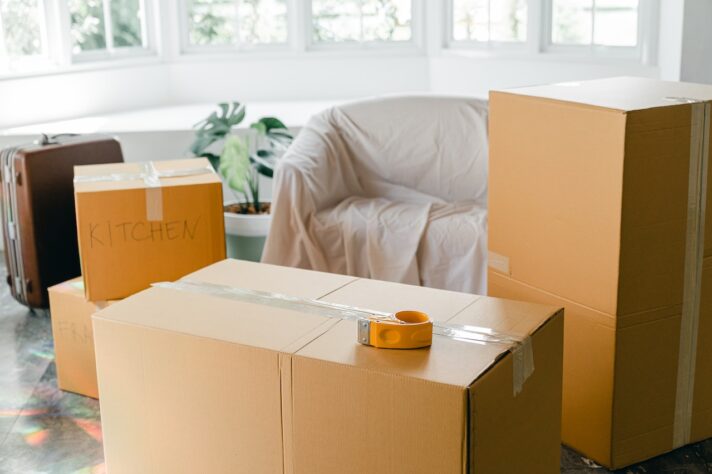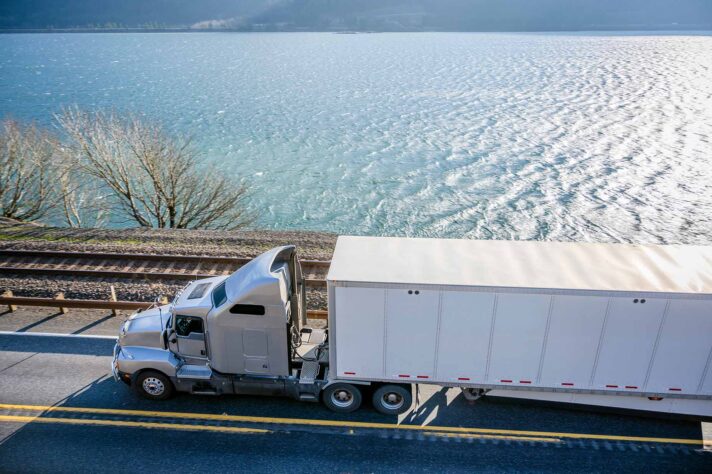Firstly, update your address with the post office, bank, and other important organizations. You should also get a new driver’s license and update your vehicle registration. Research and sign up for new utility services such as gas, water, and electricity. Find new healthcare providers and transfer medical records if needed. Finally, take some time to explore your new community and meet your neighbors.
What to Do When You Move to a New State: The Ultimate Guide
Thinking about what to do when you move to a new state can be overwhelming. Your to-do list might seem like it’s never-ending, and as the big day approaches, the pressure to keep everything under control rises. But if you want to ensure a smooth transition, there are a few things you should do.


What to Do When You Move to a New State – Cross-Country Moving Tips
When the relocation time comes, things can get stressful in no time. But with proper planning and organization, it can go smoothly. Here is what you should do prior to long-distance moving:
- Start packing early and label each box with its contents and destination room,
- Create a checklist to keep organized and on track,
- Research the laws in your new state for vehicle registration, insurance, and more,
- Make sure all necessary documentation, such as your driver’s license and registration information, are in order,
- Set up utilities at your new home before you arrive,
- Plan for a place to stay once you reach your new state,
- Take time to relax and take care of yourself during the relocation,
- Book a storage unit or find another place to store your belongings if needed,
- Allow extra time and flexibility for unexpected delays,
- Hire professional cross-country movers and invest in cross-country moving services to ensure safe, secure relocation.
By taking these steps, you can make moving cross-country successful.
What to Do When Moving to a New State? Research the New State’s Laws and Regulations First
When you start planning the cross-country moving process, it is important to research the laws and regulations that will apply as a first step toward your new life. You should get informed about the local taxes and requirements, while it’s also important to research the state’s labor laws to ensure that you comply with any overtime or other regulations. Take some time to familiarize yourself with the rules and regulations of your new home before getting on the road – you’ll thank yourself later!
Check Health Insurance Requirements
Health insurance is a critical component of every relocating to a new state adventure. It’s important to make sure you understand your existing healthcare coverage and what the requirements are for obtaining similar coverage in your new place. Additionally, research any healthcare options that may be available and whether they are covered by your existing insurance provider or not.


Get Familiar With the Local Culture
Relocating across the country can be a daunting prospect, but one of the best ways to make the transition easier is by getting familiar with the local culture. Taking the time to get to know your new city and its people will help you settle in faster and give you a better feel for how things work in your new home. Let’s face it – there’s nothing quite like the feeling of being at home in a new place.
Moving
Our mission is to bring high quality, long distance moving services to every customer.
Packing
Our expert moving teams are trained to ensure the safety of your personal belongings.
Moving Insurance
Cross Country Moving Company is the most trusted name in the relocation industry in the country.
Find a Place to Live (If You Haven’t So Far)
Not only is finding a place to live one of the most important logistical steps of your relocation, but it can also be a great way to start living out your new life in a new city. Whether it’s a rented apartment or a house you plan to purchase, having your own space will be vital for feeling comfortable and settling in. Make sure to give yourself enough time to research your options and find the perfect fit for you and your family.
Register Your Vehicle and Obtain a Driver’s License in the New State
Another essential thing to focus on is to check whether your vehicle and driver’s license are up to date in your new state. Not only will this make your life easier by giving you the freedom to travel around and explore, but it can also help prevent any legal headaches down the line. Depending on where you’re relocating to, you may also need to register your vehicle and obtain a driver’s license in the new state.
The following video can help you gather the required documents needed to register your car.
Changing Your Address Is a Priority in What to Do When You Move to Another State
Updating your address is a simple step that can save you a lot of hassle while you’re getting settled in your new home. Before the big relocation, make sure to notify the post office, the banks, and any other organizations that need to know your new address. This way, you won’t miss out on important mail or bills, and you can start enjoying life in your new home sooner!
Change Your Utilities and Cable Plan
You may not believe so, but one of the essential steps when preparing to relocate is to change your utilities and cable plan. In addition to finding a new home, researching and signing up for the utilities you need is a major part of the relocation process. Before you move in, make sure to set up your utilities and cable to get your new home up and running. From electricity and heat to internet and phone service, having these ready will help make your transition smoother and more comfortable.


Create an Emergency Plan for Yourself, Your Family, or Pets
It’s one of the little things that people often overlook when they relocate to a new city. It’s not as exciting as finding the perfect house or exploring new schools for your kids, but it is just as important – creating an emergency plan for you and your family. Creating an emergency plan may not seem like the most exciting task on your checklist when relocating across the country – but it is definitely one of the most important ones!
Research the Nearest and Best Hospitals and Vets
The first step in creating an emergency plan is doing some research on the nearest hospitals and veterinary clinics (if you’re relocating with pets). In case of a medical emergency, it’s important to have a list of nearby hospitals that are well-equipped to handle whatever situation arises. You can research and find a new doctor before you relocate for an easier transition. Similarly, if it’s a pet emergency, make sure to create a list of nearby vets who are equipped with proper facilities.
Find Suitable Schools for Your Youngest Family Members
When relocating to a new city, one of the most important decisions you will have to make is choosing the right school for your kids. Finding suitable schools can be an overwhelming task, and it is essential to research all of your options before making a final decision. Consider factors such as student-teacher ratios, curriculum offerings, and extracurricular activities when determining which school is the best fit for your child.


Explore Job Opportunities and Career Options Available in Your New Home State
Researching potential employers and industries in your new home state will help you find the right fit for your skillset. You may even find that there are more employment possibilities than you imagined. Take advantage of networking events and online resources to gain an understanding of the job market. But don’t forget that you can also bring skills from your current position with you to your new home state! Expanding upon existing experience and leveraging those connections can open up even more career paths for you to explore.
Ask Your Employer for References and Recommendations
When relocating to a new city, asking your current employer for references and recommendations can be an invaluable tool. Not only will a good reference from a trusted source help you stand out among potential employers, but it also shows that you are well-respected in your current field. Your employer may even have connections at the companies where you want to apply and can help open the door for job opportunities.
What to Do When You Move to Another State – Ensure You’re Up-To-Date on Taxes for Both States if Applicable
If you have income from multiple sources in different states, it is important to understand the nuances of each state’s tax regulations and filing requirements. Staying organized with records and receipts will save time when filing your taxes and ensure that you receive the maximum deductions and credits. Taking the time to familiarize yourself with both states’ tax codes will help you avoid any potential issues when filing your taxes with multiple states.
Connect With Friends and Family Who Are Already Living There
When you relocate across the country, it’s important to connect with people you know who already have a home in that area. They can be invaluable resources in helping you make your transition a success, so make sure to reach out to friends and family who are already living there. They can provide behind-the-scenes advice on all of the hidden gems, neighborhoods, and cultural idiosyncrasies that will make your new home feel like yours. Plus, it’s always nice to have familiar faces around.


Contact Cross Country Moving Company to Help You Organize Packing and Moving
When it comes to organizing a relocation across the country, it pays off to have professional long-distance movers by your side. Contacting a cross-country moving company team can make your transition much smoother and less stressful. With their expertise and services, such as the packing service or secure auto shipping service, you can rest assured that all of your belongings will arrive safe and sound at your new destination.
So don’t hesitate to get in touch with our pros at Cross Country Moving Company. We’ll give you an estimate on your household goods and handle the hard work. After all, you have enough to worry about as it is!
Frequently Asked Questions About What to Do When You Move to a New State
Do I Need to Register My Car in the New State?
Yes, if you have moved to a new state and plan to operate your car there, you typically need to register your vehicle with the Department of Motor Vehicles (DMV) in the new state. Each state has its own rules and requirements for vehicle registration, so it’s important to research the specific requirements of the state you’ve moved to. Generally, you’ll need to provide proof of ownership, insurance, and identification and pay any applicable fees and taxes. Failure to register your car in a new state could result in fines or other penalties.
How Do I Change My Address at My New Location?
To change your address at your new location, you should start by notifying the United States Postal Service (USPS). You can do this by visiting their website or visiting a local post office. You’ll need to provide your old and new addresses and any relevant information, such as the date you’d like your mail forwarded.
How Do I Get a Driver's License and Vehicle Registration When Moving Cross Country?
You’ll need to follow the specific requirements of that state’s Department of Motor Vehicles (DMV). Typically, you’ll need to provide proof of identity, residency, and insurance, as well as pass a vision test and a written and/or driving test. You may also need to surrender your out-of-state driver’s license and registration. Be sure to research the specific requirements and procedures of the new state’s DMV before you arrive, as some states may require additional documentation or have different procedures for obtaining a driver’s license and vehicle registration.
How Do I Obtain Insurance in My New Residence?
To obtain insurance in your new residence, you should start by researching insurance providers in your new state. You can do this by searching online or asking for recommendations from friends and family. Once you’ve identified potential providers, you’ll need to gather information about the type and amount of insurance coverage you need. This may include auto, home, or renter’s insurance, as well as any additional coverage you require. You’ll then need to contact the insurance providers to get quotes and compare prices and coverage.
Where Can I Find Information About Schools and Universities in My New State?
One option is to visit the website of the state’s Department of Education, which typically provides information about the state’s public school system and resources for families and educators. You can also search online for individual school districts or specific schools in your area. If you’re interested in higher education, you can search for colleges and universities in your area and visit their websites to learn about admissions requirements, tuition and fees, and academic programs.
Do Any Special Taxes Apply When Moving From One State to Another?
There may be special taxes that apply depending on the circumstances of your relocation. For example, some states may have an estate tax or an inheritance tax that could apply if you’re moving significant assets to the new state. Additionally, some states may require you to pay a use tax on certain goods and services that you purchased outside of the state but are using in the new state. This could include items such as vehicles or boats.
Is It Essential to Notify Credit Card Companies, Banks, or Other Lenders of an Address Change?
Yes, it is essential to notify credit card companies, banks, or other lenders of an address change to ensure that you continue to receive important correspondence and to avoid any potential issues with your accounts. If you do not update your address, you may not receive bills or other important information, which could lead to late payments or other issues with your accounts. Additionally, if you’ve moved to a new state, your lenders may need to update their records to comply with state-specific regulations.
Should I Inform Local Utility Providers of My Move?
Yes, you should inform local utility providers of your relocation to ensure that your accounts are properly closed or transferred and to avoid any potential issues with your utilities. This includes providers of electricity, gas, water, internet, and cable or satellite TV. Notifying your utility providers of your relocation will allow them to finalize your account, issue a final bill or refund, and ensure that service is discontinued at your old address or transferred to your new address.
What Type of Medical Coverage Do I Need When Long-Distance Moving to Another State?
If you have health insurance through your employer, you should check with your insurance provider to see if your coverage will continue in your new state or if you need to find a new provider. If you’re not currently covered by health insurance, you should research your options for coverage in your new state. This may include purchasing a plan through the federal Health Insurance Marketplace or through a private insurance provider.
When Should I Start Researching Job Opportunities When Moving to a New Residence?
You should start researching job opportunities when relocating to a new residence as early as possible, ideally several months before your planned relocation. This will give you time to research job openings, network with potential employers, and submit applications or resumes. You can start by researching job postings online or through local job boards and reaching out to recruiters or employment agencies in your new area. You should also update your resume and cover letter to reflect your new address.
How Will This Move Affect Taxation for Either Personal or Business Income?
Personal income tax rates and regulations vary widely between states, so it’s important to research the specific tax requirements of your new state and consult with a tax professional if you have any questions or concerns. You may need to file tax returns in both your old and new state for the year of your relocation, or you may be able to prorate your income based on the amount of time you lived in each state. For businesses, relocating to a new state can also have implications for state tax laws and regulations, including sales tax, payroll taxes, and income taxes.
Are There Any Safety Precautions That Need to Be Taken When Moving Residence?
Yes, there are several safety precautions that need to be taken to ensure that you and your belongings arrive safely at your new location. These include packing and labeling boxes carefully to avoid injuries or damage, using proper lifting techniques when moving heavy items, and wearing appropriate footwear and clothing to prevent slips, trips, and falls. It’s also important to secure your belongings during transit by properly securing furniture, electronics, and other items and ensuring that all items are properly loaded and secured in the truck.
What Is the Best Way to Plan for a Move and Ensure Everything Goes Smoothly?
Begin by creating a timeline and checklist of tasks that need to be completed, such as researching cross-country moving companies and checking what type of cross-country moving service they offer. Next, you should notify utility providers and lenders of your relocation and pack your belongings. Set deadlines for each task and track your progress to ensure that you stay on schedule.
It’s also important to declutter, donate unwanted items, and organize your belongings to ensure that you only take what you need and to lower the costs of long-distance moving services. Label all boxes clearly and keep an inventory list of your belongings to ensure that nothing is lost or damaged while the long-distance moving company team handles it. It will also make it easier to unpack after the move.









